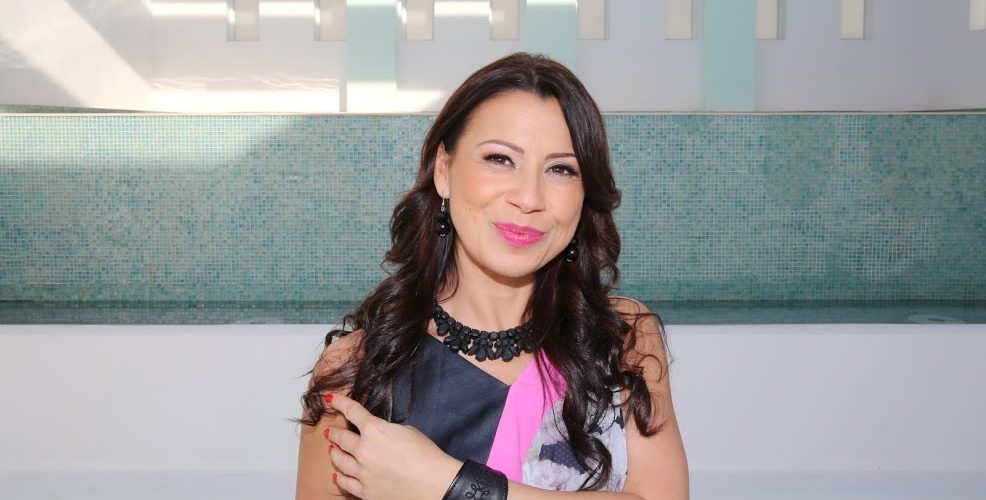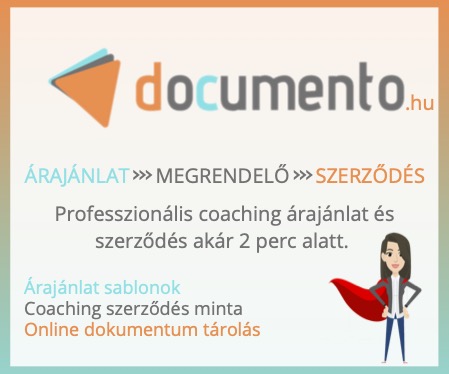Zita is a diverse and truly international corporate recruitment leader, executive search consultant covering multiple business segments within leading corporations and recruitment firms across Europe, Middle East, India and Asia, and a knowledge savvy recruitment 3.0 researcher developing innovative talent attraction platforms and applications for companies.

She has managed recruitment teams and vendors across Europe, Middle East, India and Asia, with results ranging from achieving large scale talent acquisition projects to managing critical individual search assignments. She is an effective business partner to her clients, being skilled at translating business goals and staffing objectives into customized recruitment team effort and results. She is also well versed at managing third party vendors on behalf of her business clients, as well as utilizing leading recruitment industry software to manage client requirements in an organized and metrics driven framework. Zita is also an entrepreneur and a business consultant, well- connected to international tech start-ups, innovation labs and and active member of various business groups and organizations.
MC: Where do you see the start of a career development?
Kulcsár Zita:The words of ‘Career Development’ will be soon replaced by other terms. What the HR visionaries are guessing, that within 5 years’ time nobody will have traditional full time jobs, but we all will be working in flexible work arrangements as freelancers, part of various project teams.So the traditional ‘climbing up the ladder’, which we called career path in the industrial age will lose relevance. What we start to see especially in the developed countries, that more people are moving from vertical to horizontal career path, as business evangelists realized that sticking to the same track for years after years can significantly deteriorate the performance of a good worker, also can decrease creativity. This can be overcome by following horizontal movements. People will also soon recognize that they need to be not only specialists of specific fields, but multidisciplinary generalists to access ideas and methods from other fields for innovation for their original discipline. Knowledge gets outdated faster and faster today, so learning is becoming a lifestyle for the ones who wants to stay in the front row. The skills we need tomorrow are non-existent yet, but there are already a number of skills we know, we need to bring to perfection. So in terms of development, the best what you can do is developing some fundamental skills, like ……which gives you a preparedness to react the fast changing environment with a continuously increased complexity.
MC: Do you think collage/university education is crucial to success?
Kulcsár Zita: 10 years ago it was very important that somebody went college to have a chance to become successful…It was a door opener that you had a decent degree…Today it is more skill-based….If somebody has good communication skills, good sales skills, resilient, fast learner and good with people, (in Europe it is also important to speak English well, and potentially other European languages) they could be trained and thrown into the deep water for a trial. Leveraging the advantages of social media, we also find alternatives to prove that we can fit a role. Also education is changing, education is a big concern…The question is how education is related to up –to-date knowledge….Universities, companies, policy makers and also current university students are all worried today. Students who join universities now, by the time they graduate, all the knowledge they’ve learnt will be outdated. In the US today every second graduate would become unemployed or would be employed in a non-adequate role relative to their educational background. This ration in Europe is even worse, so we can see there is a fundamental issue about outdated knowledge, and our ability to apply knowledge at the first place. On the other side when it comes to alternative education, there is a wide range of opportunities now, where you can learn and stay up to date via open university courses by prestigious universities, blogs, forums, educational media platforms. If you have a passion to learn spontaneously, use your fundamental skills, connect well, and really wanting to do something can replace easily your college education in more and more professions now. Learning is a lifestyle, is a way of living.
MC: Is BA enough or MA, Postgrad, MBA, Phd is required for specialization?
Kulcsár Zita: The 20th century was built on the knowledge that we need to specialize, and if we put those next to each other, we were be able to make sense to the world. Today specializations would not stand alone. Specializations have to relate to each other creating an overall system or framework, to target the questions of today’s life complexity. Corporations work on the same way, they are not able to handle complexity from a specific level. And we are getting close to that level, so we need people who are able to helicopter, able to see the map of reality in motion, and connect their specific field to that. Some of these conventional university and postgrad courses can support areas of specialization, if somehow the course can ensure that their curriculum is up-to-date. Most courses, other than may be some world class university courses, would not be able to achieve that, so course titles themselves wouldn’t matter. It’s more important to choose some charter education or even join some project teams which provide you with live market knowledge.
MC: Who / what field or segment are you specialized on?
Kulcsár Zita: In terms of background I’m a hybrid recruiter… worked on both fields, small agencies, retained as well as contingency, but I also worked for big matrix organizations…right now I’m working as a freelancer consultant for a global agency, but on their corporate side.Through my whole career, I was just simply very curious about this profession, I wanted to try whatever I had the opportunity for in recruitment, even though it was a high price to pay as these environments differed from each other quite extremely, so I had to adapt and learn very fast to be able to deliver …I was also more creative in my problem solving than what was required in most of myjobs in general, so I ended up getting many critical tasks to solve, what other recruiters have already given up on. I haven’t realized that time that curiosity and creativity was preparing me to be able to work on very diverse international projects a few years later, where most of time what I’ve been doing, I’ve never done before. Even now projects I like to take are the ones, I’m very curious about, and keep me on my toes day in and day out by their challenges and their novelty. I’m continuously learning on the job and by now, spending most of my time outside of my comfort zone became my new normal.
MC: Biggest shifts since you first started recruiting?
Kulcsár Zita: I really had two big shifts since I’ve started my career. The first when I moved into one of the largest multinational firm from a small 10 people private recruitment agency…To suddenly been disciplined by very strict multi-level processes after experiencing a complete freedom ( only rule was that you had to bring the numbers and maintain an ethical work approach), definitely made me feeling insecure for a while. Using my old pattern, which was figuring out what process to follow based on my own judgments was suddenly not allowed. And at the time I wouldn’t have identified that as a positive experience. I always have been a ‘thinking out of the box’ person, and a good problem solver, that was my way to succeed, and having 9 out of my 10 ideas shot down with a comments, like ‘Zita, good idea, but we don’t need ideas, we have processes.
The next big shift was when I became a freelancer in 2010 coming out of 6 years corporate experience. This is when I realized how protected the corporate environment was for me, even managing big regions and having tough discussions time to time with my internal clients. Looking back on those years, they really made me overconfident in an artificial environment, which were giving me a false feeling of security about how business works… so when started to work as a freelancer on an international market, it was like bungee jumping of the cliffs never knowing how good quality the ropes are.
MC: Biggest change in last 5 – 10 years?
Kulcsár Zita: We know that we are in the final hour. Considering the good side of the technological explosion we are headed to, we never been so close to the opportunity to be happy. Happy in all areas of our life. We are living in economies with full focus on personal experience, we call them ‘Experience Economy’, ‘Attention Economy’ and even ‘ME Economy’. Today’s way of life can highly satisfy not only our basic needs, but it can even make our wildest dreams come true. On the other side we have never been so close to the danger of disappearing as a human race. So what will happen? We don’t know yet, but this is not a lottery Hot Pick to only think about on Saturday nights. It largely depends on us, people, whether we take the good path or the bad path. And the journey goes on. It’s a ‘NOW’ thing, we are progressing with small steps towards one or the other, with every single decisions we make on a daily basis. Change and complexity is affecting all areas of our life and all of our industries. These changes are not only influencing the surface of our life, but they change all of our fundamental definitions, such as what work is, what success is, what survival is, what happiness is, and how these relate to each other as each other’s environment.
The reason why us, Talent Acquisition Professionals, Recruiters, People professionals have a huge role in influencing which direction we are taking, because we are the gatekeepers of the path which can take us to understand who we are as people, what is important to us, where do we want to be tomorrow, what sense we want to make out of this new reality we live in. The changes are close to being out of control, and there is a lot at stake…but at the end of the day, where we always go back to is, The People. Answering all these questions are as important as asking the right questions. And picking the right questions is harder than ever. You need to be in a constant transformative adaption, following the map of reality in motion, gaining the constantly emerging skills which are not even existent today, understanding the tools which are becoming our extended reality, and working as a sense-maker in an environment, which is more or less similar to a shop you are walking into and seeing lots of products with instructions to switch them on and off, but without a tag or a name and a slightest idea, if they are for your kitchen or for your bathroom.
MC: Greatest challenge today? How will you overcome it?
Kulcsár Zita: How do you reconcile the classical professionalism with the new world? Professionalism what you learnt, that this is the way you need to do these jobs. Okay, but if the whole world changes and we have a new playground where people have new expectations, how can I be professional within this setting. …The key towards this, isa multidisciplinary approach…we have to reach out of our profession, bring in the available new knowledge and reframe what we know about this profession, how we can create value.
Of course it is also a challenge when you are a game changer working towards the better that you have to deal with the opposition who refuse change.
To be the opposition is a very valuable role. Of course I’m not talking about a war or a personal abuse, but I’m talking about a good symbiosis. But sometimes it can get ugly. The reason why there is an ugly opposition towards innovation, because many people wants to enforce their own interests. They stuck in their own scheme, own pattern, this is how they owned control, this is what natural for them, so they think that this is the way things are. And from certain perspectives, they can be right, just because something is new, it does mean, it is also good. If we change too fast, we can crash. So we also need to balance the pace of change…and we might all need to be more flexible to that. So this is really a debate of yin and yang.
MC: When does a job seeker/applicant become a candidate?
Kulcsár Zita: In the current technological set up and in an experience economy, there is not such a straightforward line in between candidates, or applicants. We need to understand ifwe ask the right question here, and I like to investigate how marketing is handling customers. Marketing identifies a customer funnel, and within that funnel they differentiate various stations. Such as who are the exciting customers for us? How are the ones more open than others..? Who are the ones we can easily engage with? Who are the ones we could potentially talk about specific deals? Today connecting with people in a technological space is an organic process. So it is really a question of perspectives, from where you want to look at your funnel? So it really depends on you how you want to call them, for me the important thing is to understand the flow…so you can tell me what to call them for , and I can try to find a place to put the sticker on for you…
MC: How is the job seeker / candidate different today?
Kulcsár Zita: The most important difference is between today’s and yesterday’s job seekers is that they expect a faster and more transparent approach from the job market. They are also in a more disadvantageous situation today, when it’s really difficult to understand how employer’s expectations are changing to stay in the driver seat. Recent researches showed that jobseekers still think that academic qualifications are as important as they were years ago, in the meantime they put less emphasize on their soft skills and personality traits, self-awareness, which are becoming increasingly important to today’s employers. I do believe that we are not where we should be when it comes to supporting job seekers, we definitely need to find new ways of helping them to find their own directions and success.
MC: What are the special, typical, frequent problems job seekers are struggling with? How do they seek / find solutions? How do you support them?
Kulcsár Zita: The current job market can be very challenging with fewer opportunities and increased competition for these opportunities. It’s difficult to stand out from your competition, and many job seekers still living in the past using the old tricks to find a job as years ago. With the current economic situation you need to really have a job hunting strategy, which is a lot more than just updating your resume by yourself or may be even by a consultant and send those to as many advertised jobs and recruitment agencies as possible. You need to master your CV writing skills, may be even using some creative approach, also you need to develop your interviewing skills, and you need to have proactive strategies by searching for hidden opportunities too, which can open the door to jobs may be not advertised, provide valuable contacts and provide additional information about the job market. You also need to get a better understanding as job seeker about the way recruitment works in different companies, so you can meet their expectations. To stand out from your competition if you can demonstrate, that you are taking responsibility for your future, and the future wants you to be prepared by masteringspecific skills most companies are looking for. Skills such as critical thinking, complex problem solving, active listening, computer knowledge, Operations and Systems Analysis and sales and marketing etc. Your attitude is also crucial. According to some studies Professionalism (86%), high-energy (78%) and confidence (61%) are the top three traits employers say they are looking for in new hires. Now everybody think they owe these traits at the beginning of their job hunting, but to be able to stay positive is another level. Only jobseekers with deeper self-understanding can do that. So plenty to do. The best scenario is that you have an external support who can help you to keep the right perspective. Ideally a professional coach or career adviser can help you the most, but friends and families can be also as beneficial support.
MC: What does success look like to you?
Kulcsár Zita: I’ve never believed that there would be a recipe for success. There is no recipe, there are only individual journeys. We need to examine 2 things when we think about success: 1, is that what success means to you….2, that what is your journey…when it comes to my success, I can tell you how I realized what success means to me on my journey…if you ask me how can you be successful, I need to get to know you…I need to get to know you in depth to understand your path and values, your dreams and your fears. As I can only give guidance, but not a recipe.
Success in my story was the ability to go beyond professionalism….which is better than being perfect….The authentic is better than the perfect…there is too much artificial perfection in our industry…but unfortunately it has an ugly side effect of mannerisms. I also take it as my success factor, that I was able to maintain my curiosity. My curiosity is larger than my fear, which allows me to live by my passions and dreams….I’ve accepted that within the current changes and complexity, I can only be an amateur in whatever I’m doing…I will fail time to time, I will not be able to be an expert even though I try to do my best. This is a huge mind shift for me.
MC: Where do you see recruitment is heading to? What lies in the future?
Kulcsár Zita: Recruitment is at a very interesting place right now, with huge technological advancements but also huge challenges. The world of job market is struggling already with many issues, and this is only getting worse for a period. Challenges recruitment as well as job market Today, the world of recruiting has gone 100-percent digital. From the résumé to the search to the interview, we’re moving toward a digital hiring model.
Also, there seem to be a significant change as what could be the starting point for recruitment, though I believe that recruitment in the traditional sense will not exist for much longer, but may be for another 3-5 years more. To realize new business in a rapidly changing environment, you really need to be innovative, but whatever impulse you get for an innovation or start-up may be a new technology or simply a gut feeling about market trends – a huge field of unknowns makes it difficult to validate the entrepreneurial opportunities. You need to identify these unknowns, and find ways of dealing with them. For these you will need a wide range of methodologies, which will come from team members from a range of fields contributing different approaches, perspectives and ideas.
On this way the professional boxes we have been recruiting for, for many years, will dissolve. We will start from a potential solution. We will probably have a lot of curator type of positions to make sense of the things we are creating. For example: PayPal – we don’t know what it is, but we know what it is suitable for… I think we are going to have a lot of companies, products like this, when we know what we are using them for, without really be able to define them by our classical terms…definitions are going to get outdated almost continuously in time. When it comes to skills necessary for developing these new solutions, we will not know exactly what specific skills we will need to get to the creation, so our motivation, values, desires, passions will be more ( probably mixed with some fundamental skills) will be more important , than specific skillsets. We are going to work in a more dynamic space, we will need to spin up teams with a greater speed. On this way I can see two directions we might move onwards. One is led by dynamics…Like I can imagine a ‘job stock exchange’ type of initiations, such as ‘Taskrabbit’ for example… the other one is led by personal relationships, common interest of communities…In the world order we don’t need institutional structure for work related organizations…network type of structures will do Just as fine…that’s one of the beauties of social networks.
MC: Where are You heading to in your career? What is your future?
Kulcsár Zita: I like to think that my future is on the path, which owns a purpose to disrupt our industry to elevate the Talent Acquisition and Recruitment professions on global basis. There is a lot of controversy in opinions about the quality of our industry, on the other hand talent acquisition is the No.1 priority for businesses for the upcoming years.Currently I’m working as an Employer Branding Project Manager for an Italian owned international company headquartered in Milan, where I’m designing internal communication and talent attraction methods for various European countries to engage employees and potential hires in a quality way. I’m very concerned about where we are with candidate experience still, and I’m thinking to focus some more activities there in the future.
I’m also working with Lavoie Entertainment, a quality content and video production company in Miami, where I’m participating in a number of documentary films about topics such as the ‘art of recruiting’ and ‘talent attraction’. We believe that the most effective way to teach—to really reach someone on deeper level—is through shared experiences and candid conversations, not boring lectures. So we’ve developed a more holistic learning experience for audiences online and in-person—the docufilm. In each docufilm, we assemble a group of industry leaders and real life practitioners for raw, honest dialogue that exposes true stories of what is and isn’t working in the HR space. We host these forums in unique locations and film them using red epic cameras, the same kind used in the series House of Cards, so the result is a rich, cinematic feel that allows viewers to not just hear the words but to sense the energy of the space and crowd. Whether they take part in it live or watch it online, people can’t help but walk away with a broadened mind and a more open heart. And all docufilms come with messaging and marketing that is both artistic and professional, designed specifically to spark the interest of and add value to the industry’s best and brightest.
http://lavoieentertainment.com/artofrecruiting
Lavoie Entertainment is also the producer for Top Recruiter: Miami Reality Series , which showcases a Global Competition between the World’s Top Recruitment Agents. This is a huge innovative marketing expedition for our industry. I’ve been casted for one of the 6 contestants and I’ve been invited to participate the new season in 2015 by the executive director Chris Lavoie, who found me on some social media platforms last year, and knowing that more or less 10 k people applied for the casting of this show, I’m hugely proud to represent Hungary and be the European voice in Season 4. The film will be out in September 2015.






















